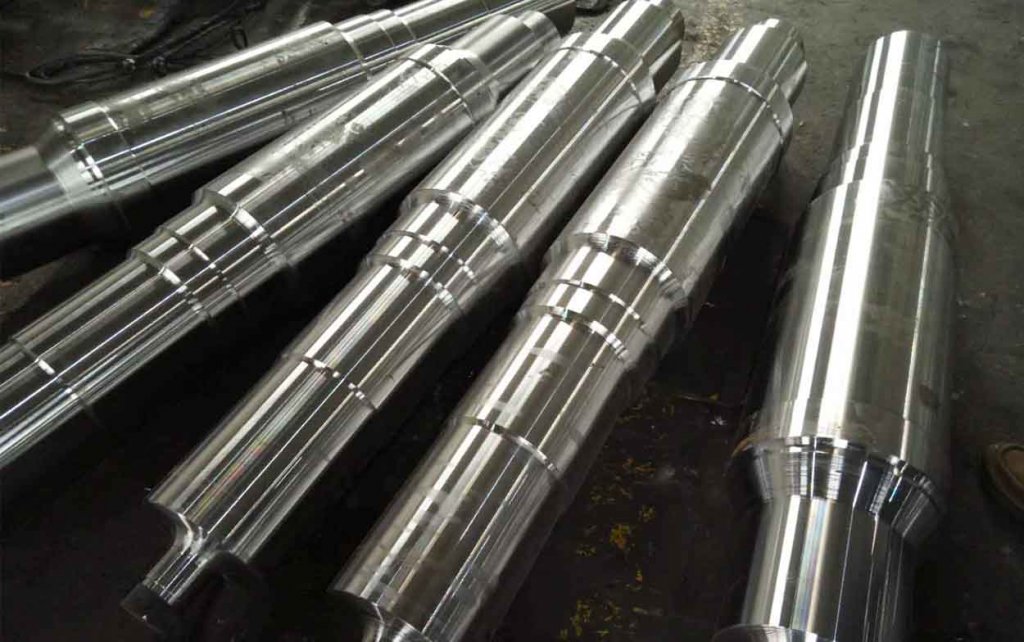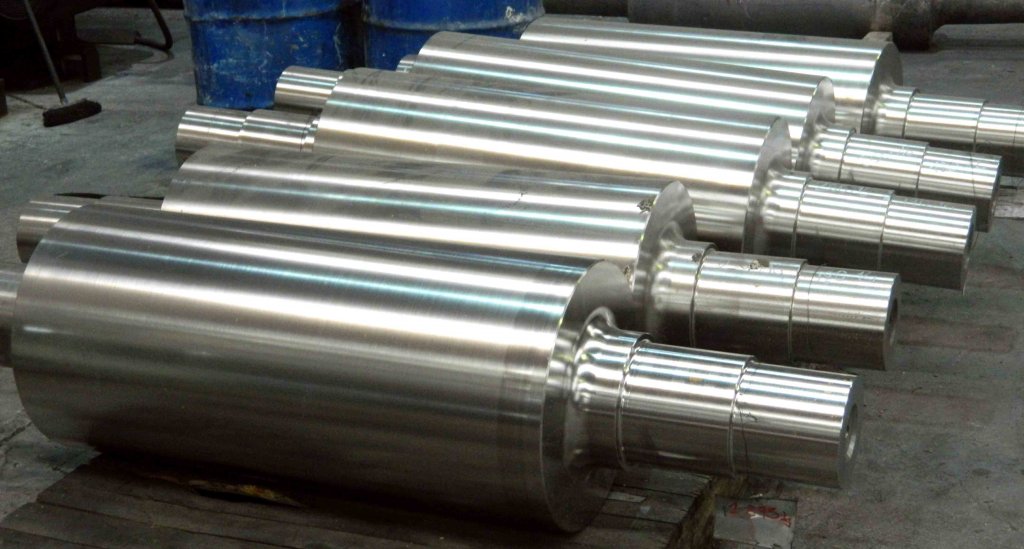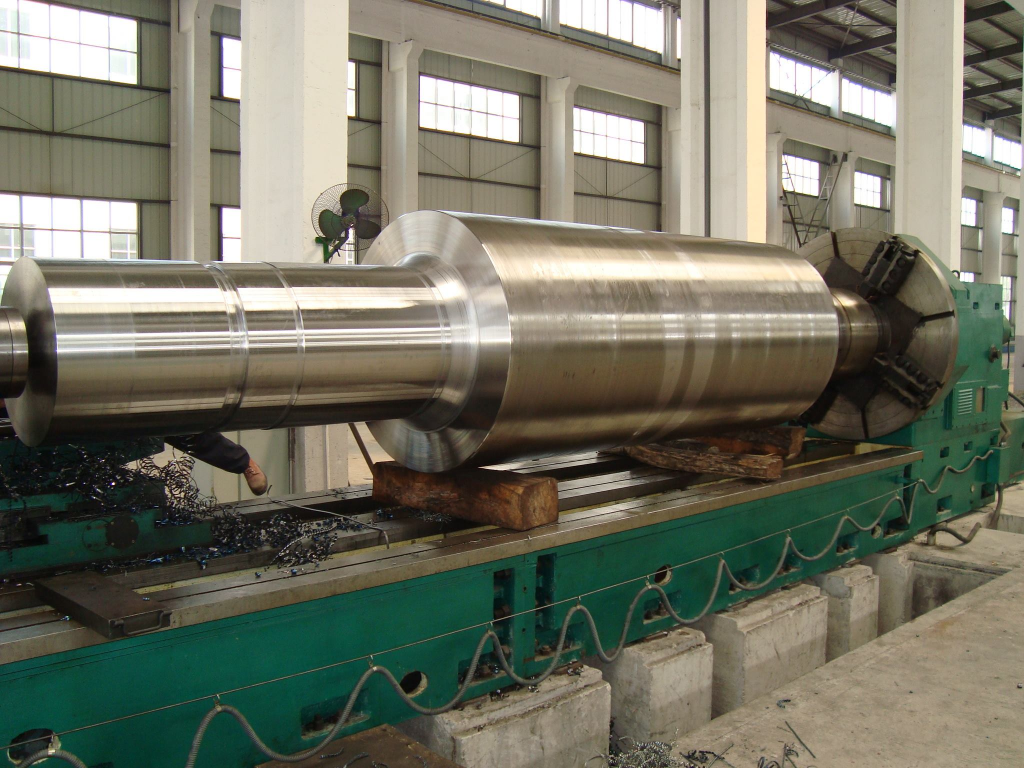- Work Roll Material Selection
The work rolls of rolling mill roll before rough rolling (R1): Work rolls before rough rolling must have toughness, wear resistance and thermal crack resistance. The hardness range is about HS40-55. Generally, 60CrNiMo cast steel and other material rolls are used.
Work rolls after rough rolling (R2): The work rolls after rough rolling require the materials with good resistance to cracking. Generally, semi-steel, high-chromium steel, high-speed steel are chosen.
The work rolls rolling mill roll before finishing rolling mill (F1-4): The work rolls in the front part of finishing rolling have high temperature and heavy load. Generally, cast semi-steel and high-chromium centrifugal composite cast iron are used. High-chromium centrifugal composite cast iron has high roll surface wear resistance and thermal crack resistance, and it can suppress roll surface defect.
Finish roll work roll (F5-7): In the latter part of finishing rolling, the work roll is used in the final stage of rolling, which has a very important influence on product quality and surface state. The performance of the roll needs to have high hardness, wear resistance, indentation resistance, peeling resistance and thermal crack resistance. Generally, infinite chilled cast iron (normal type, improved type) is selected.
- Selection of support roller and vertical roller material
The support roller for both rough rolling and finishing rolling are required to have good thermal crack resistance, wear resistance, fatigue resistance and high strength. Materials such as composite cast steel and alloy forged steel (Cr3, Cr5) are generally used.






